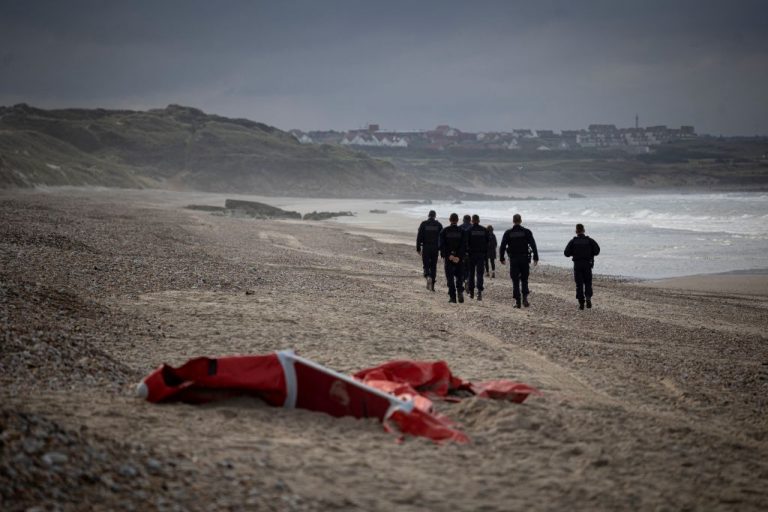The majority of French citizens are worried that the trend of mass immigration to their country will lead to ethnic French becoming a minority, according to a new poll.
In an online survey conducted by Harris Interactive of 2,544 online users between Oct. 15 and Oct. 18 aged 18+ titled Voting Intentions Barometer for the 2022 Presidential Election, respondents were queried for their opinions on which Presidential candidate they were likely to vote for, stance on increasing the national minimum wage, and the concept of the “Great Replacement.”
A Google translate of the summary of the group’s findings says the Great Replacement is defined as a “phenomenon presented by some people as the risk that ‘European, white and Christian populations are threatened with extinction following Muslim immigration, from the Maghreb and Black Africa.’”
Harris found that “More than 6 in 10 French people believe that this phenomenon will occur, including more than a quarter believing that this phenomenon will ‘certainly’ occur.”
RELATED ARTICLES:
- Israeli Pegasus Spyware Spied on Macron, Dalai Lama, Telegram Founder
- Hungarian PM Viktor Orban Talks of Immigration, Challenges West, but Stays Close to China
- DHS Whistleblower Says Sex Trafficking Gangs Exploiting Loophole to Gain Asylum, Sponsor Migrant Orphans
Success
You are now signed up for our newsletter
Success
Check your email to complete sign up
The results further noted that even among establishment voters, as many as half believe the Great Replacement will occur. On the right, it found that greater than 9 out of 10 supporters of Marie Le Pen’s National Rally and 77 percent of les Replublicains supporters fear the phenomenon.
“Two-thirds of French people say that this phenomenon worries them strongly that it could happen, including nearly 4 in 10 French people are very worried about it,” read the report.
In a slide posted on Twitter by Harris Interactive, among the portion of respondents who opined that the Great Replacement would manifest in France, 59 percent were women and 63 percent were aged 18 to 34.
According to the poll, the primary challenger to sitting President Emmanuel Macron, Eric Zemmour, would lose by a 43 to 57 percent margin if the election occurred today. Zemmour, a described proponent of the Great Replacement theory, said “The ideas that I espouse are now central in French society” in response to the results on Twitter, according to Free West Media.
According to website World Population Review, government statistics on racial demographics are a no go because, “A law from 1872 prohibits the French Republic from conducting a census by making any official distinction between its citizens in terms of race or religious beliefs.”
However, that prohibition does not extend to polls, think tanks, or analysts. In 2017, Pew Research Center showed that 8.8 percent of the metropolitan French population — or more than 5.7 million people — was Muslim, the highest out of all countries in Europe.
Pew modeled three scenarios, each low, medium, and high, in an attempt to estimate future migration. In its findings, Pew noted that, “Europe’s Muslim population is expected to grow in all three scenarios – and more than double in the medium and high migration scenarios – Europe’s non-Muslims, on the other hand, are projected to decline in total number in each scenario.”
The “high” migration scenario Pew modeled was defined as a “record flow of refugees into Europe between 2014 and 2016 to continue indefinitely into the future with the same religious composition (i.e., mostly made up of Muslims) in addition to the typical annual flow of regular migrants.”
It forecasted that “Muslims could make up 14% of Europe’s population by 2050 – nearly triple the current share.”
In September of 2020, French media outlet Fdesouche found in data analysis of first names given to newborns registered with the government that children born with a “mixed” name or a Muslim name had more than doubled from less than 10 percent in 2003 to 21.53 percent in 2019.
In November of 2015, National Review published an article titled France’s No-Go Zones: Assimilation-Resistant Muslims Are the Real Refugee Problem that described a chaotic situation plaguing the country, “Early Wednesday morning, French police conducted a raid in Saint-Denis, on the northern edge of Paris, where operatives of the jihadist enemy were holed up in an apartment.”
“In the ensuing shootout involving several jihadists, Kalashnikovs were fired at police who stormed the hideaway. A woman detonated an explosive suicide vest. Several police were wounded; the woman and a male terrorist were killed.”
“So why did the jihadists end up in Saint-Denis?” asked the outlet.
“Because it is a notorious Islamic enclave, though you wouldn’t know it from the mainstream American media. The terrorists are in Saint-Denis because they know they have the support — or at least the indulgence — of a large, studiously assimilation-resistant Muslim population.”
Fdesouche’s data analysis broke its findings down by district. Saint Denis had the greatest proportion of Muslim-named newborns in the country at a staggering 54 percent, up from 44 percent in 2009.
















